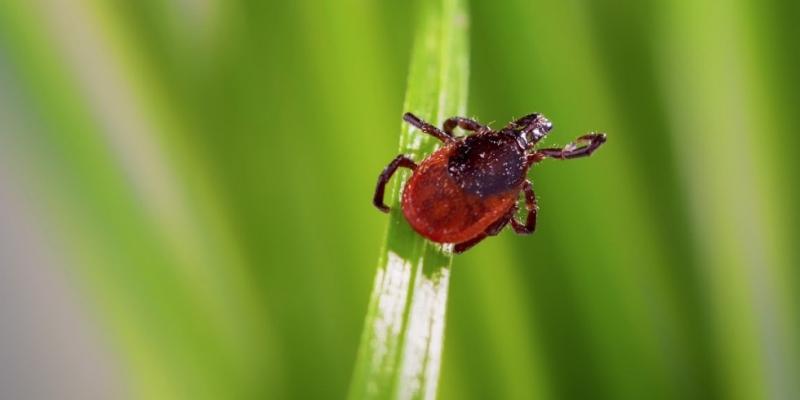Starting at the end of March, we start to see tick activity slowly increase. As we approach July, the tick population explodes, staying active through September. If our winter is warmer than usual, tick season can last even longer.
4 Way to Avoid Tick Bites
As the ticks start to come out, there are a few things you can do to protect yourself and your pets from getting a tick-borne illness.
Personal Protection
If you’re an outdoor enthusiast, hiker, or love to walk your dog, it’s important to protect yourself as much as possible from ticks. Keep your pants tucked into your socks (no matter how dorky you feel!), shirts tucked in, and clothing buttoned. This makes it much harder for ticks to find their way onto exposed skin. Hats are also a great way to keep ticks from nestling into your hair, making them hard to find.
You will also want to avoid areas known for ticks. Avoid sitting on logs, stumps, or the ground in a bushy area, and don’t walk through areas will tall or overgrown weeds.
After you’ve been outside, take the time to inspect yourself, your family, and your pets for ticks. Shake clothing loose outside to keep from bringing ticks into your home. For harder to reach areas like your back or head, ask a friend or family member to help you check.
If you do find a tick on your skin, proper removal is incredibly important! Using forceps, slowly and steadily pull the tick out of your skin— but be careful not to break off the mouthparts and leave them in the skin. After removing the tick, do not touch other areas of your body, especially your nose, mouth, or eyes, as the secretions left by ticks carry bacteria that can transmit numerous infectious diseases. Wash your hands and the bite spot thoroughly with soap and water.
Habitat Modification
If you take away a tick’s habitat, you can reduce your risk of contracting a tick-borne illness! Keep the vegetation around your home trimmed, especially along the paths that you, your family, and your pets travel along. Keep your grass cut to 3” or less, as well!
You’ll also want to remove any debris or ground cover that could harbor small rodents. Ticks like to hitch a ride on wildlife and rodents, making their way into your hard.
If you’re hiking away from your property, don’t allow your dogs to rub against shrubs or run through the tall grass, as ticks could be lying in wait for their next meal. Stick to the trail as much as possible!
Removal of Potential Hosts
Ticks can find their way into your yard on the backs of wildlife and rodents. If you suspect rodents are making their way into your home or wildlife is living in your yard, you might need to hire a professional for rodent removal or animal control.
Rodents can be tricky and wildlife can be aggressive when cornered. The best way to remove hosts for ticks is by employing a professional pest control company.
Apply Pesticides
The groundwork for a tick-free home is laid during the early spring. As soon as the weather starts to warm up, begin to apply pesticides. This step will reduce the larvae and nymphs which safely navigated the winter and are ready to begin their next life cycles.
Prevent Ticks Bites with Proactive Tick Control
Don’t wait until you have a tick infestation in your home to take action! All it takes is one engorged female tick, brought home by you or your dog after a hike, to create a real nightmare scenario. Your new guest can lay 4,000 to 6,500 yellowish-brown eggs before she dies in 36 to 57 days. After that, unfed larvae begin to crawl around, looking for a host to feed on. This host could be you, your family, and your pets.
You don’t have to let this happen, get started with prevention today! Invader Pest Management’s SafeDog™ Tick Prevention program is an effective preventative program designed to proactively stop ticks from becoming the troublesome adults that attack your pets and family.
If your property has a number of ticks, you need to contact Invader Pest today for tick control. Ticks are not animals we can easily co-exist with. They are a danger to you and your family’s health. Tick control is a necessity.
